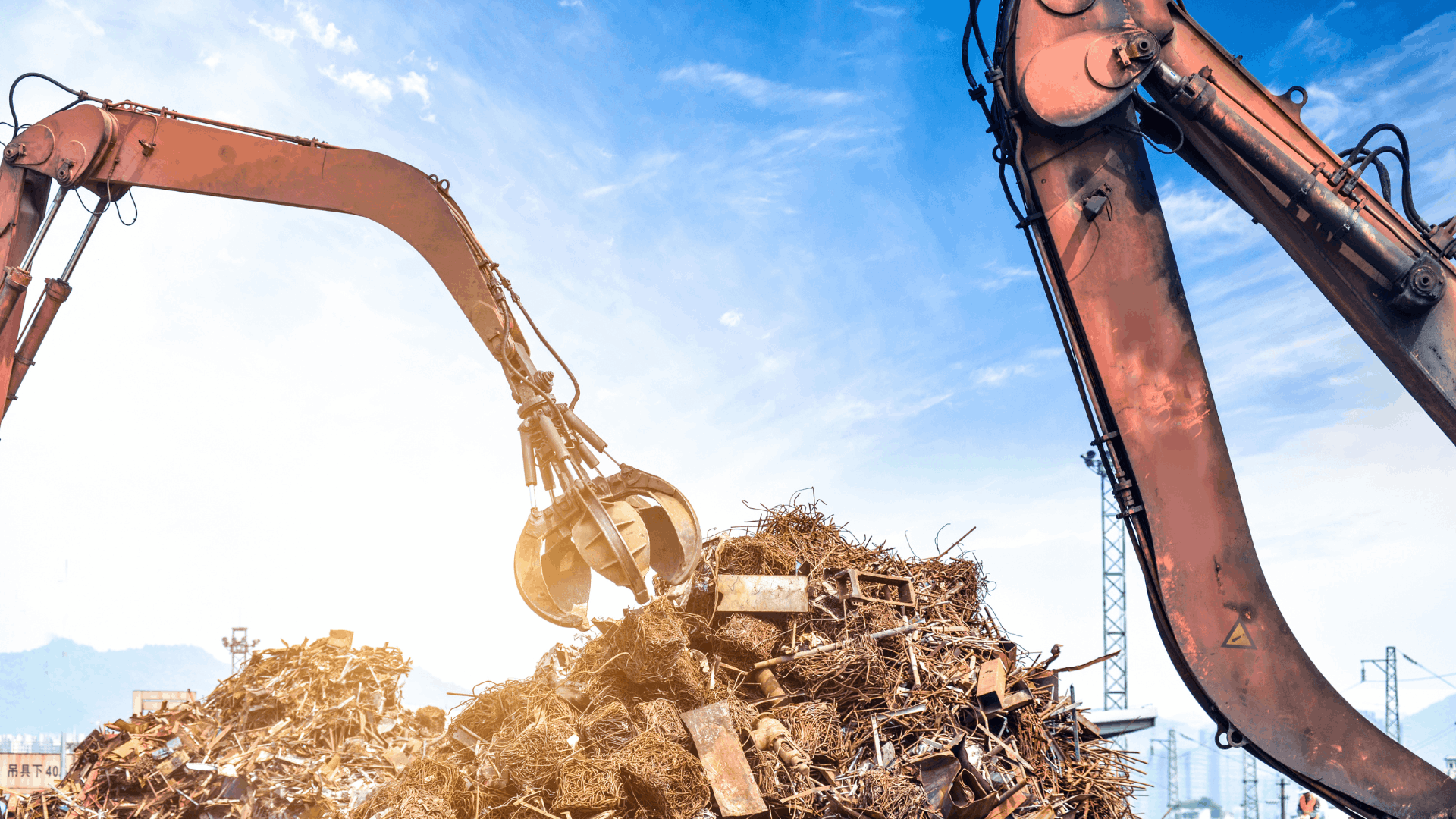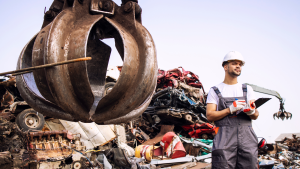![]()
Indian Government Initiatives and Incentives for Scrap Metal Import: The scrap metal industry is pivotal in India’s economy, contributing significantly to its industrial growth and environmental sustainability. Recycling and reusing scrap metal conserves natural resources, lowering energy consumption and greenhouse gas release. Recognising the importance of this sector, the Indian government has launched many initiatives and incentives to promote the import of scrap metal, fostering economic development and environmental conservation.
The Scrap Metal Industry in India
The scrap metal industry in India encompasses a wide range of metals, such as ferrous and non-ferrous materials like iron, steel, aluminium, copper, and more. These materials are collected from various sources, such as discarded machinery, appliances, automobiles, and construction waste, and then processed for recycling. This industry not only aids in waste management but also provides employment opportunities and raw materials for manufacturing sectors.
The Indian Government’s Initiatives and Incentives
To support the growth of the scrap metal industry, the Indian government has introduced several initiatives and incentives aimed at simplifying import procedures, encouraging recycling practices, and promoting sustainable economic development. Here are some of the critical initiatives and incentives:
- Scrap Recycling Policy: In 2020, the Indian government unveiled the “National Scrap Recycling Policy” to formalise and streamline the scrap metal recycling sector. This policy emphasises the creation of a sustainable ecosystem for scrap collection, processing, and trading. It promotes using recycled metals in domestic manufacturing, reducing India’s dependence on imported raw materials.
- Reduction in Import Duties: The government has periodically reduced import duties on various types of scrap metal to make it more affordable for domestic industries. These reductions have been instrumental in incentivising the import of scrap metal, thus promoting recycling and reducing the demand for virgin materials.
- Simplified Import Procedures: Customs and import procedures have been streamlined to facilitate the easy and efficient import of scrap metals. This includes the introduction of simplified documentation processes and electronic filing systems, reducing the bureaucratic hurdles importers face.
- Easier Access to Finance: The government has encouraged financial institutions to provide loans and credit facilities to scrap metal importers and recyclers. This access to finance helps businesses invest in advanced recycling technologies and expand their operations.
- Research and Development Support: The government has initiated research and development programs to encourage innovation in the scrap metal recycling sector. These programs focus on developing cleaner, more efficient recycling processes and finding new applications for recycled materials.
- Skill Development and Training: The government has also recognised the need for a skilled workforce in the scrap metal industry. Various training programs and skill development initiatives have been launched to equip workers with the necessary expertise in handling and recycling scrap metals safely and efficiently.
- Environmental Regulations: Stringent environmental regulations and standards have been established to ensure that scrap metal recycling operations adhere to best practices and minimise environmental impact. This includes guidelines for pollution control and waste management.
Benefits of Importing Scrap Metal
Importing scrap metal offers several advantages for India’s economy and environment:
- Resource Conservation: Importing scrap metal reduces the demand for virgin metals, conserving natural resources. This is crucial as India’s industrial growth requires substantial metals for infrastructure development and manufacturing.
- Energy Savings: Recycling scrap metal consumes significantly less energy than producing metals from raw materials. This reduces energy costs and lowers greenhouse gas emissions, contributing to India’s efforts to combat climate change.
- Economic Growth: The scrap metal industry generates employment opportunities throughout the supply chain, from collection to processing and manufacturing. This leads to economic growth and poverty reduction.
- Balance of Trade: Importing scrap metal helps balance India’s trade by reducing the need for importing expensive raw materials. It can lower the trade deficit and enhance the country’s economic stability.
- Environmental Benefits: Reducing the need for mining and metal extraction through scrap metal recycling helps mitigate the environmental impact of these activities. It also lowers landfill waste and associated environmental issues.
- Circular Economy: Promoting scrap metal recycling is a significant step toward establishing a circular economy in India. This approach minimises waste generation and maximises resource utilisation, creating a more sustainable economic model.
Challenges and Solutions
While the government’s initiatives and incentives have boosted the scrap metal industry, several challenges persist:
- Quality Control: Ensuring the quality of imported scrap is crucial to prevent contamination and substandard materials. The government needs to establish robust quality control mechanisms.
- Infrastructure Development: Investing in recycling infrastructure, including scrap yards and recycling plants, is essential to meet the growing demand for recycled materials.
- Environmental Compliance: Enforcing environmental regulations and holding violators accountable is critical to preventing pollution and environmental damage.
- Public Awareness: Increasing public awareness about the benefits of scrap metal recycling and encouraging responsible disposal practices is vital to the industry’s success.
- International Collaboration: Collaborating with other countries for responsible global scrap metal trade management can help ensure sustainable practices.
Conclusion
The Indian government’s initiatives and incentives to promote scrap metal import have played a pivotal role in fostering economic growth, resource conservation, and environmental sustainability. The scrap metal industry contributes to India’s industrial development while reducing the carbon footprint associated with metal production. However, addressing the challenges in the sector, such as quality control and infrastructure development, is essential to realise the benefits of scrap metal recycling fully. India can become a leader in sustainable scrap metal recycling practices with continued government support and industry cooperation.
source: https://ecoserveindia.com/indian-government-initiatives-and-incentives-for-scrap-metal-import.html





